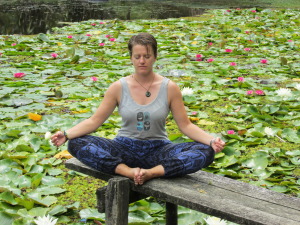I love summer and admit to getting a bit sad once winter descends! I find myself desperately grasping onto each sunny day and trying to make the most of it at this time of year, wishing the days were longer and warmer and wishing I’d made the most of the summer whilst it was here! Crazy when we know that summer and winter come and go each year as the seasons change. There’s some interesting parallels here on how we live life and something I’ve been contemplating.
This weekend I went to a course on, wait for it – death! Not the most enjoyable way to spend a weekend you’d think and not at the top of most people’s list, but it was really interesting which has led to this article on my take aways and how it can help us. Those who follow me know I’ve spent years studying Buddhist practices and philosophies on life and this one intrigued me having experienced loss a couple of times already this year.
You see one thing we all know for sure is that we will die, there’s no greater certainty and we’ve no idea when really. Because of this it’s so important we live whilst we’re alive. Some of us might get it pointed out in advance if we’re sick or receive a terminal diagnosis but we’re all on the same conveyor belt whether we’re aware or not.
How can this help us though rather than send us into a state of panic or depression? We never think about death in our western world. We live like we’ll be around forever and then when it comes (as it always does) we’re completely unprepared, scared and desperately hanging on to life, wishing we’d actually lived it – like me with summer!
Here’s the thing from a Buddhist perspective though. If we consider that we will die one day (fact), it changes the way we live, it changes our perspective. If we thought we may die today our interactions become different with people, we do the things that matter, we treat each other with kindness and the little things stop bothering us.
For anyone who’s been close to death, lost someone dear or been in the midst of an earthquake or natural disaster this may have become clear. It doesn’t need to take those things though for us to have the perspective and awareness and to live each day with meaning and appreciate more of what we have. The scary thing is that each day we live is a day closer to our death.
Yet we live like we’ll be here forever. The Buddhist nun this weekend likens it to staying in a posh hotel. We know we’re only there for short time, we make the most of the fine white sheets, the fluffy bath robe and free shampoos. We enjoy it, appreciate it but we don’t believe we’ll take any of it with us or cry when we leave because we knew right from the start that we’d be checking out.
When we think about our death we stop chasing after the things that we can’t take with us – money, status, material possessions and we focus on the things that make life meaningful. We stop putting things off “I’ll be happy when I get… (the job, house, car, partner)”. We learn to appreciate what we have and live in the moment rather than postponing our happiness to a point in the future.
When faced with death we stop worrying about getting it all perfect – our career, our house, the way we look. We tend to not want to think about death, it’s a morbid subject and we certainly don’t want to think about the death of loved ones – we hope they’ll live forever.
Let’s face it though; it’s only when something ends we talk about how much we enjoyed it, miss it and how lovely it or they were. This is true of holidays, leaving speeches and eulogys at funerals but why wait until then. If, like Buddhists, this was our every day and not just in the face of something ending we’d learn to appreciate what we have, we’d spend our time doing the things that matter, with those we love and we’d tell people what they meant to us and what we appreciate about them.
Bronnie Ware, a palliative care nurse, talks of this in her book Top 5 regrets of the dying. What is it that people regret most looking back on life? That they’d worked less, appreciated more and lived more true to themselves.
And when our final day comes, because we don’t always get the warning, we’ll have fewer regrets and we’ll have lived each day like we’d have wanted.
Find out more about beating the overwhelm and living life more meaningfully here














